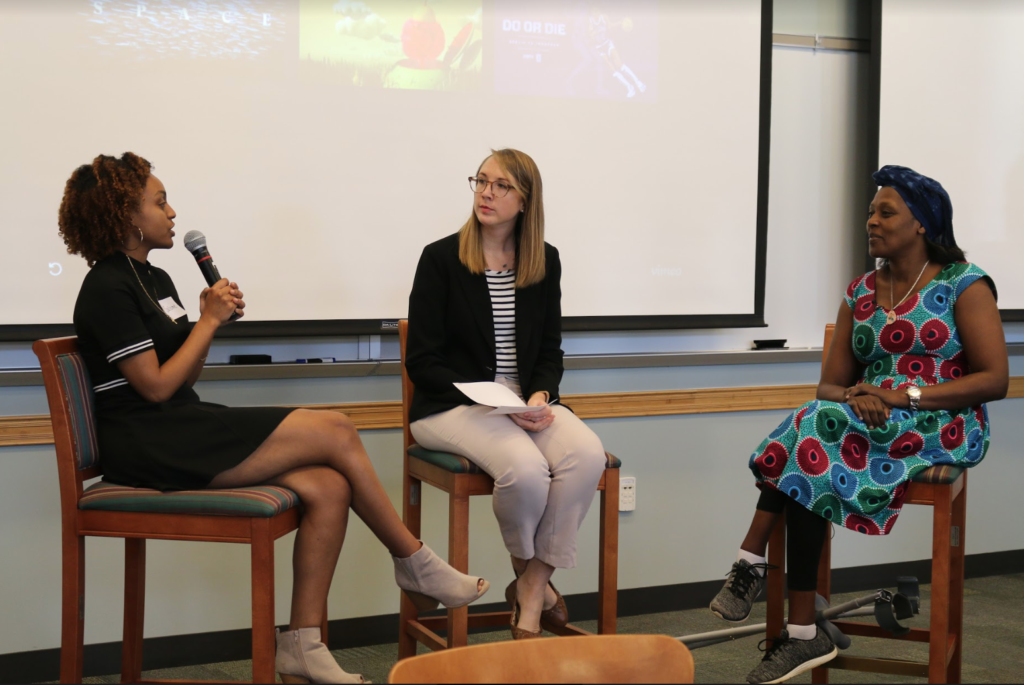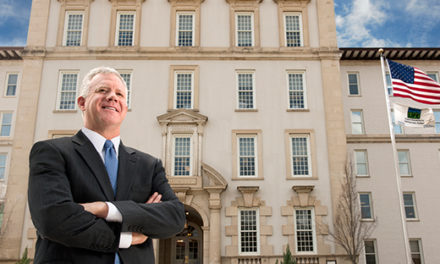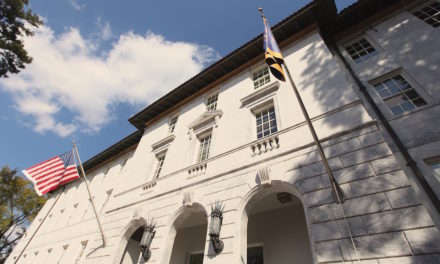
Neema Namadamu (right) speaks on how her disability motivated her to create Maman Shujaa on Friday afternoon./Ayushi Agarwal, Photo Editor
Neema Namadamu, founder of women’s empowerment organization Maman Shujaa, discussed gender equality and life in the Democratic Republic of Congo at the finale event of the third annual Emory 21 Days of Peace on Sept. 21.
Namadamu spoke about how she only received an education because she contracted polio at two years old, which prevented her from marrying. In Congolese culture, girls are expected to drop out of school, help with fetching water and helping their mothers with the house — and they’re usually forced to marry as children, according to Namadamu.
Though society viewed Namadamu as “cursed,” she now refers to her disability as a “privilege.”
The speaker’s organization, Maman Shujaa, or “Hero Women,” seeks to empower women and girls in Congo through education, technology and leadership training that enables them to speak out against gender inequality through the media. Namadamu formed the organization after her daughter was beaten by government soldiers. Her goal is to give girls confidence, education and a voice.
In Congo, Namadamu said she saw opportunities to break barriers as a woman by rejecting societal rules for women. However, as a black woman now living in the United States, Namadamu said she encounters racism and fears for her daughter who lives here with her.
“In Congo she was a girl, but here now, she [has] a color,” Namadamu said.
She also emphasized the importance of education in bringing systemic change surrounding gender inequality.
“What we’re fighting is a system … the system doesn’t want [us] to know how beautiful it is to be educated,” Namadamu said.
Namadamu said that the culture of degrading girls in Congo and globally is the largest barrier to her work. Girls often doubt if what they are doing is right because others criticize them when they step out of the norm.
Despite these cultural and deeply rooted issues, Namadamu said she is hopeful about the future of global gender equality, as she believes the world is making significant progress.
Francois Alinon, a doctor from Togo who attended the discussion, said he appreciated Namadamu for bringing attention to the issue of gender inequality.
“You know I’m coming from Africa … so I know what women are [facing],” Alinon said. “Having a leader like her talk, to give a voice to women is … really great.”
Atlantan artist and serial entrepreneur Callahan McDonough said she felt inspired hearing Namadamu’s personal decision to view her disability as an opportunity to incite change.
“I just felt very inspired,” McDonough said. “She turned what could have been a limitation all of her life into the gift that gave her a breakthrough.”




